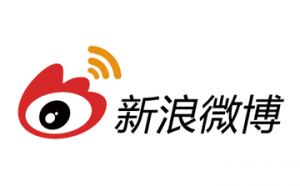Difference between revisions of "Weibo"
(→Adaption of Weibo by Foreign Users) |
(→Adaption of Weibo by Foreign Users) |
||
| Line 18: | Line 18: | ||
Weibo censors certain keywords that its developers deem sensitive or rumorous. The developers are constantly sharpening Weibo's governing mechanisms in order to squash rumors through a variety of channels. | Weibo censors certain keywords that its developers deem sensitive or rumorous. The developers are constantly sharpening Weibo's governing mechanisms in order to squash rumors through a variety of channels. | ||
| − | ==Adaption of Weibo | + | ==Outside Adaption of Weibo== |
Recently, many celebrities and famous individuals have recognized the social power of Weibo. For example, Coco Rocha is a famous high fashion model who signed up for a Weibo account. In a little over two months, Rocha has 100,000 "friends" or followers. <ref>http://oh-so-coco.tumblr.com/</ref> | Recently, many celebrities and famous individuals have recognized the social power of Weibo. For example, Coco Rocha is a famous high fashion model who signed up for a Weibo account. In a little over two months, Rocha has 100,000 "friends" or followers. <ref>http://oh-so-coco.tumblr.com/</ref> | ||
Revision as of 05:15, 17 December 2011
Weibo (officially Sina Weibo) is a popular, self-censoring Chinese micro-blogging website. Established by the Sina Corporation in 2009, in operation, Weibo functions essentially like the Twitter platform. Users are limited to posting 140-character status updates. They may also share photos, videos, or audio clips along with these updates. Posts may be "forwarded", the equivalent of Twitter's "retweeting".
Contents
Background and Popularity
The name derives from the Chinese portmanteau for "microblogging".
Weibo has over 100 millions users.
Weibo plans to launch an English version of the site by the end of this year.
China blocks Twitter
Even before the Chinese government decided to block Twitter on June 2, 2009 it was not very popular. Twitter plans to release a Chinese version of the site, but it is not expected to succeed due to the complexity of China's censorship laws.
Censorship
Weibo censors certain keywords that its developers deem sensitive or rumorous. The developers are constantly sharpening Weibo's governing mechanisms in order to squash rumors through a variety of channels.
Outside Adaption of Weibo
Recently, many celebrities and famous individuals have recognized the social power of Weibo. For example, Coco Rocha is a famous high fashion model who signed up for a Weibo account. In a little over two months, Rocha has 100,000 "friends" or followers. [1]
Many individuals and companies are now realizing how lucrative the Chinese Market can be for their products and brand images. As a result, many are signing up for Weibo as a way to reach out to their Chinese consumers, fans and supporters.
Ethical Implications
One reason why Weibo is so popular in China is because it is supported by the Chinese government. Its government has direct control over its content, unlike other social networking sites like Facebook and Twitter that has servers located across the world. The fact that Weibo has the Chinese government over its content leads to the debates in censorship, particularly whether such censoring of user-generated content is morally and ethically correct.
See Also
References
- "The train crash heard around the world" aljazeera.com. Retrieved 2011-11-03.
- "China Censors Occupy Movement" blogs.law.harvard.edu. Retrieved 2011-11-03.
- "5 Facts You Must Know Before Talking About Sina Weibo and Twitter" technode.com. Retrieved 2011-12-13.
- "List of websites blocked in the People's Republic of China" Wikipedia.com. Retrieved 2011-12-13.
- "China's Sina to step-up censorship of Weibo" in.reuters.com. Retrieved 2011-12-13.
